The 1700th anniversary since the First Council of Nicaea
24/04/2025 | Na stronie od 25/04/2025
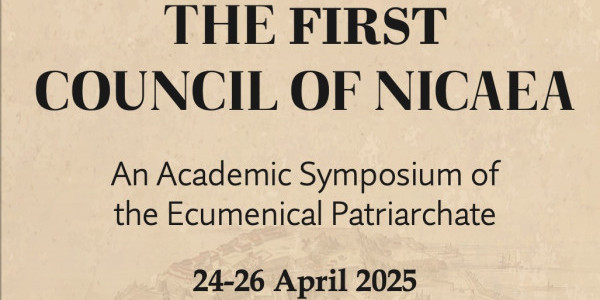
Source: Ο ΟΙΚΟΥΜΕΝΙΚΟΣ ΠΑΤΡΙΑΡΧΗΣ
Istanbul–Nicaea, April 24–26, 2025
ACADEMIC SYMPOSIUM OF THE ECUMENICAL PATRIARCHATE ON NICAEA
Additional reading:
- Nicaea and Christian–Jewish Relations, Michael Ipgrave
First published: 05 June 2023.
Read the full text
Abstract
It is widely recognized that the Council of Nicaea marks a watershed in relations between Christians and Jews – both specifically the Ecumenical Council itself and also more generally the decades around and following 325. It was at this time that the separation between Christians and Jews, and between Christianity and Judaism, can be said to have reached a definitively final form, the conclusion of the long, drawn-out process referred to as the “parting of the ways.” Despite periods of co-existence and mutual enrichment, the history of Christian–Jewish relations has too often been marked by toxicity and tragedy. Christians have not only distinguished themselves from Jewish peoplebut have treated them with disparagement, exclusion, and, at times, persecution; moreover, Christian anti-Judaism prepared the ground for a still more deadly secular antisemitism. Against this background, this article approaches the question of how to mark the 1700th anniversary of the First Council of Nicaea in terms of its significance for Christian–Jewish relations in our own time.- How the Council of Nicea intensified antisemitism and a Bible ban
By DAVID PRICE The Jerusalem Post, JULY 30, 2017.- On Decrees that Spilled Jewish Blood: The Evil Legacy of the Nicene Council by Aaron David Fruh - a Research Fellow at The Institute for the Study of Global Antisemitism and Policy (ISGAP) based at Cambridge University in the UK and President of Israel Team Advocates, whose mission is to change the growing anti-Israel narrative on college campuses. /The Times of Israel/
- The Council of Nicaea and Its Influence on Replacement Theology, ICEJ Reports.
Within the framework of official celebrations planned by the Ecumenical Patriarchate in commemoration of the 1700th anniversary since the First Council of Nicaea, an Academic Symposium will be held in Istanbul and Nicaea on April 24–26, 2025.
The Academic Symposium will be held at the Marasleios Urban School and the Municipality of Nicaea (today’s Iznik). His All-Holiness will be in attendance to welcome participants and declare the official opening of the symposium, which is sponsored by the Huffington Ecumenical Institute at Holy Cross School of Theology.
Speakers at the Academic Symposium of the Ecumenical Patriarchate include the most prominent scholars and authors from all over the world on the First Council of Nicaea and its broader influence on the Christian world.
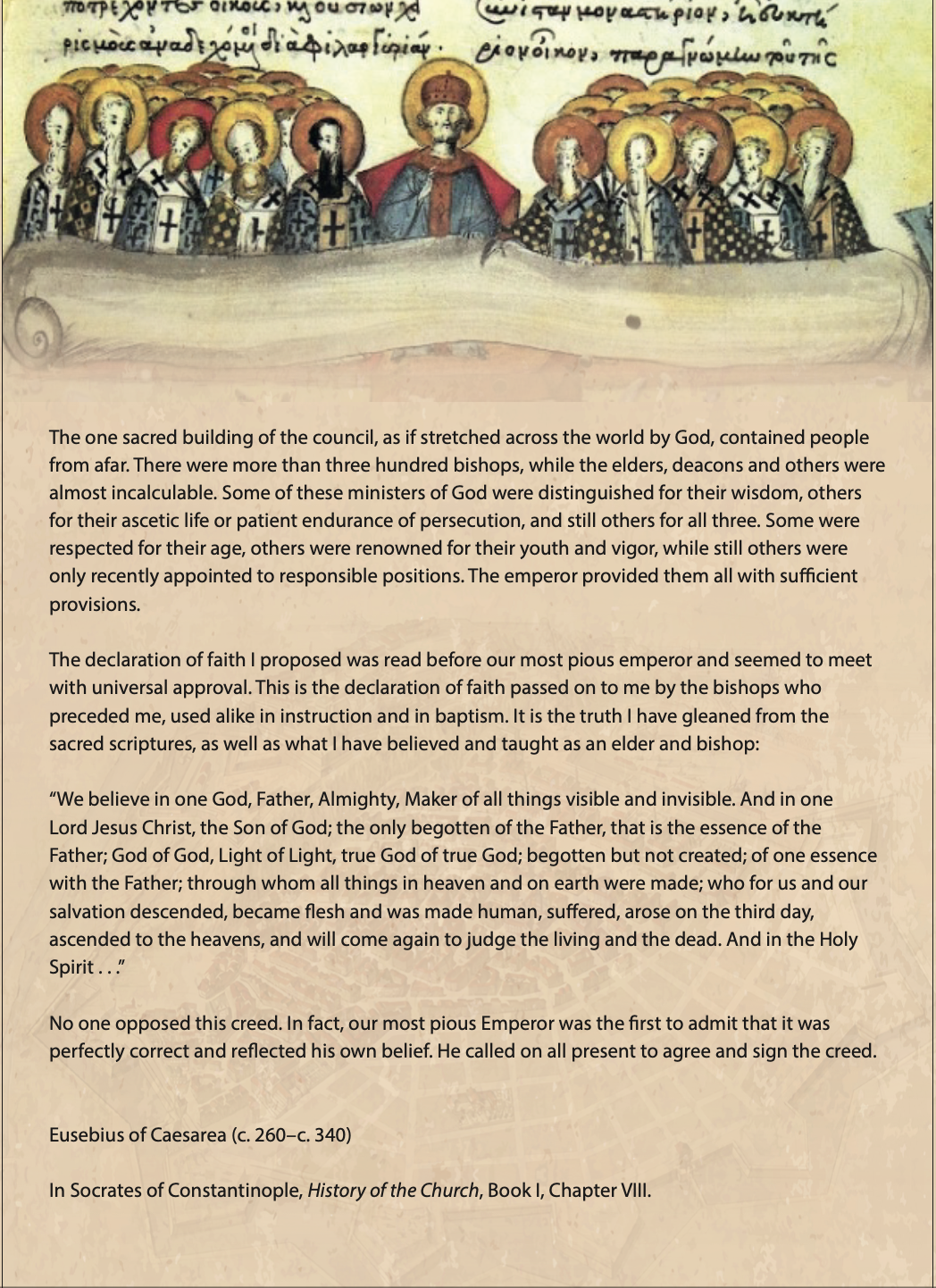
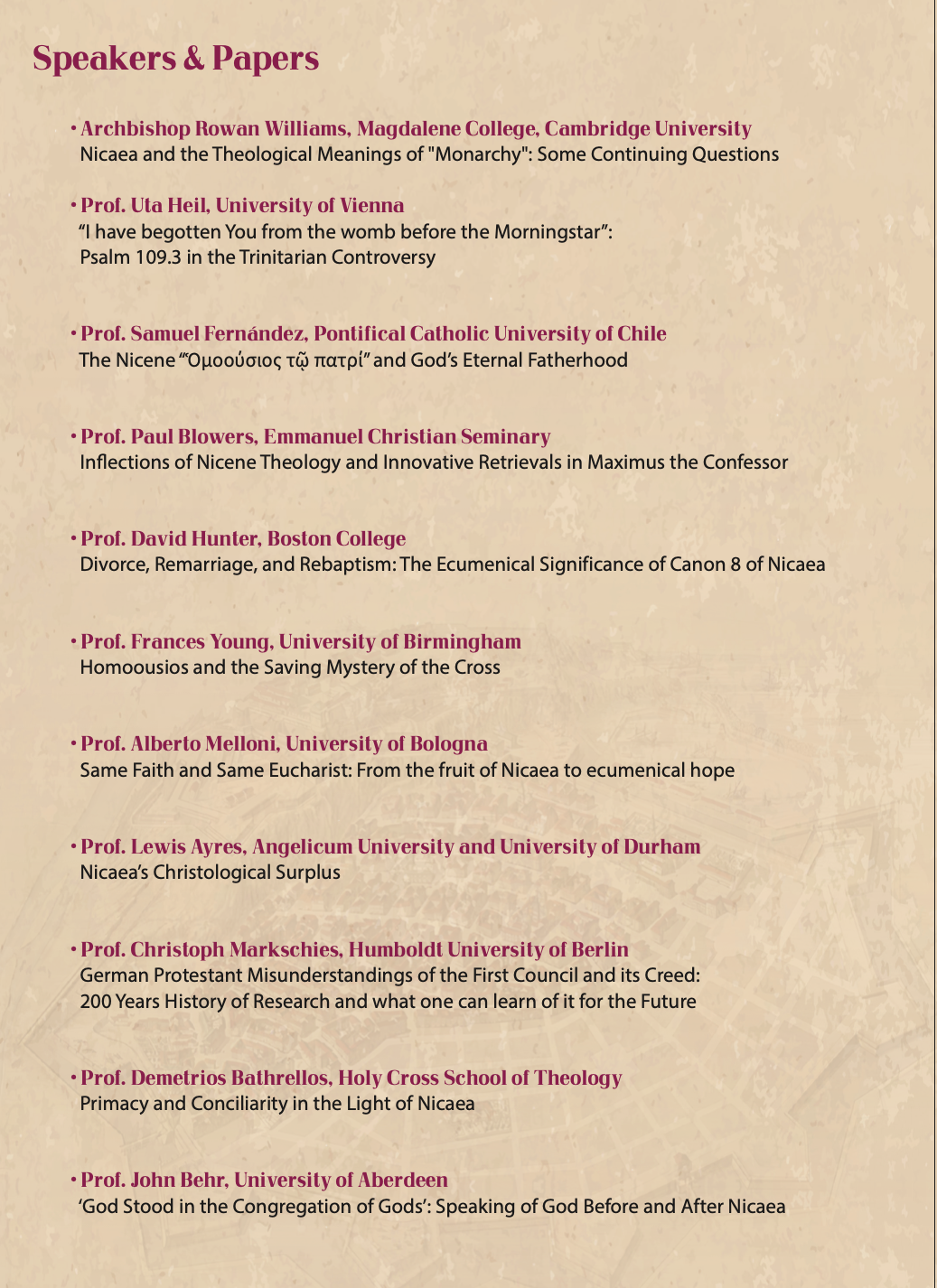
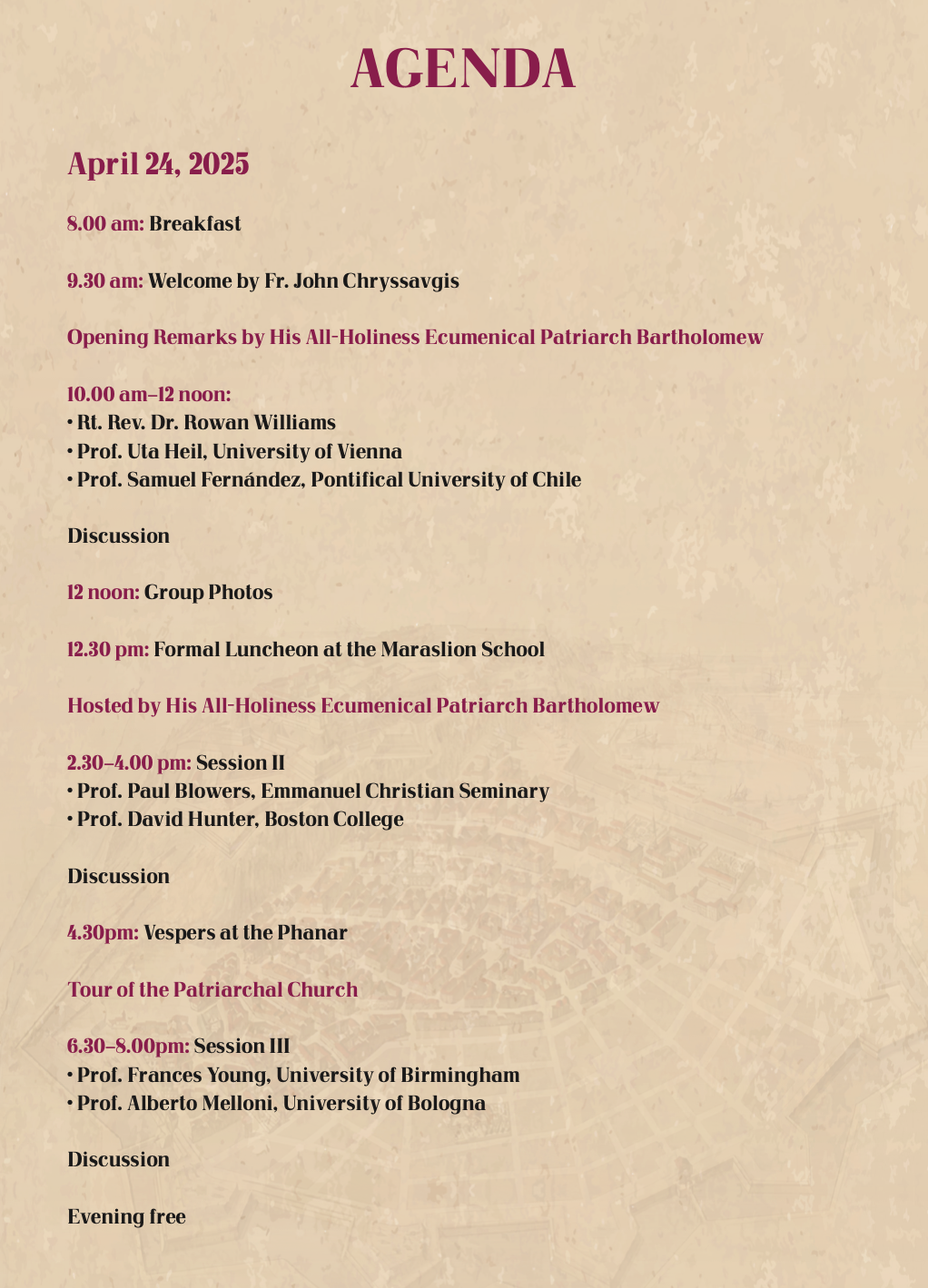
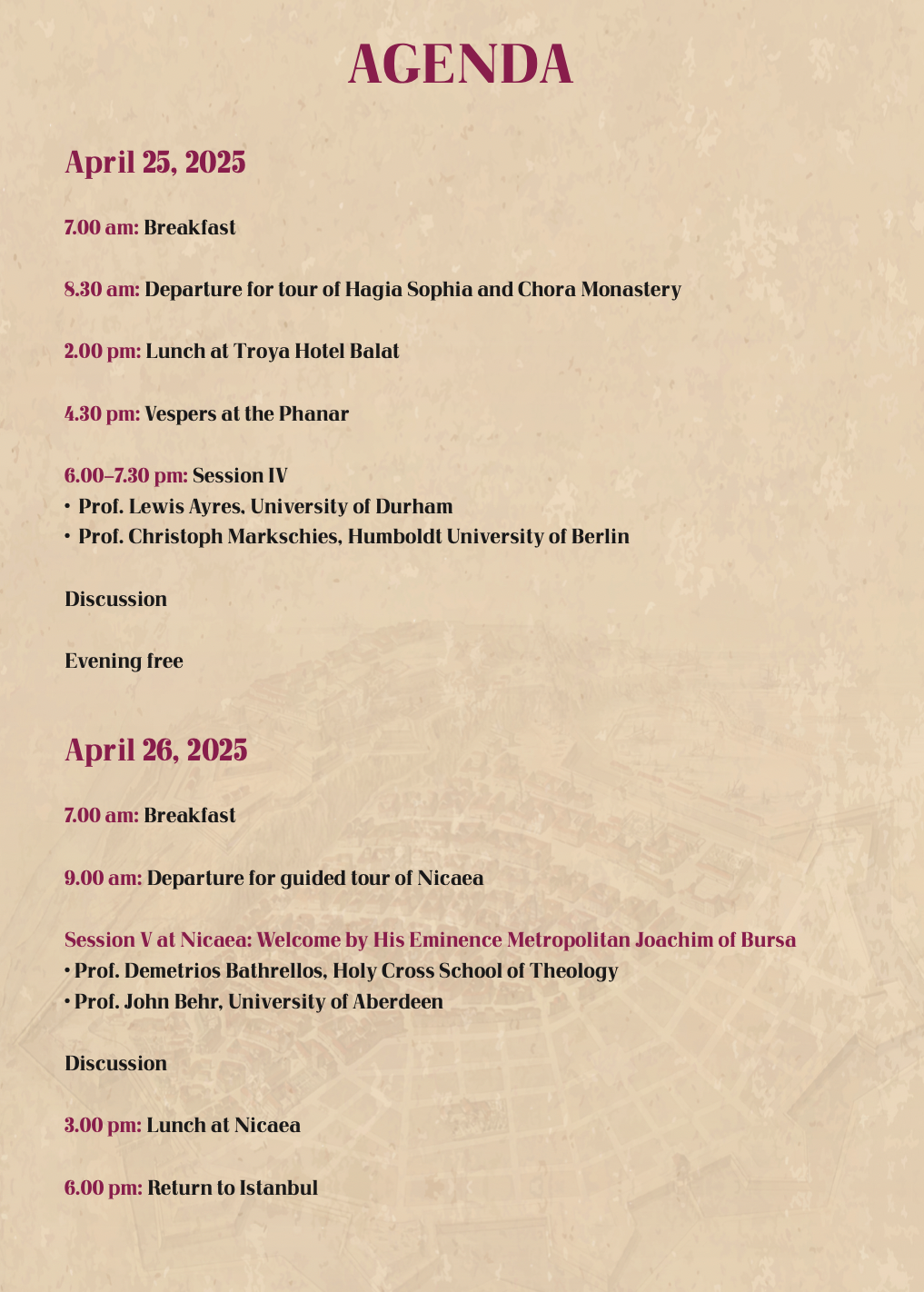
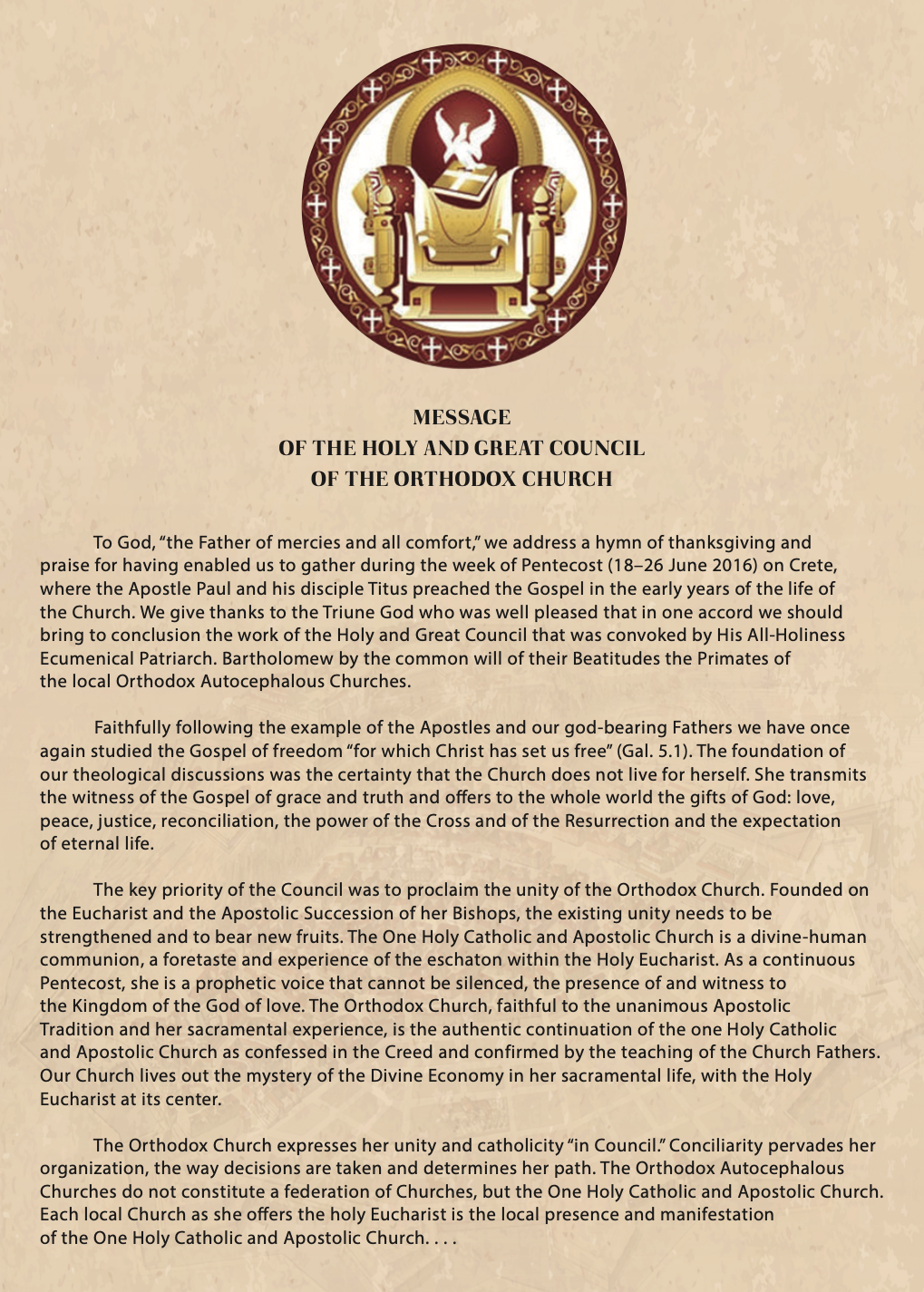
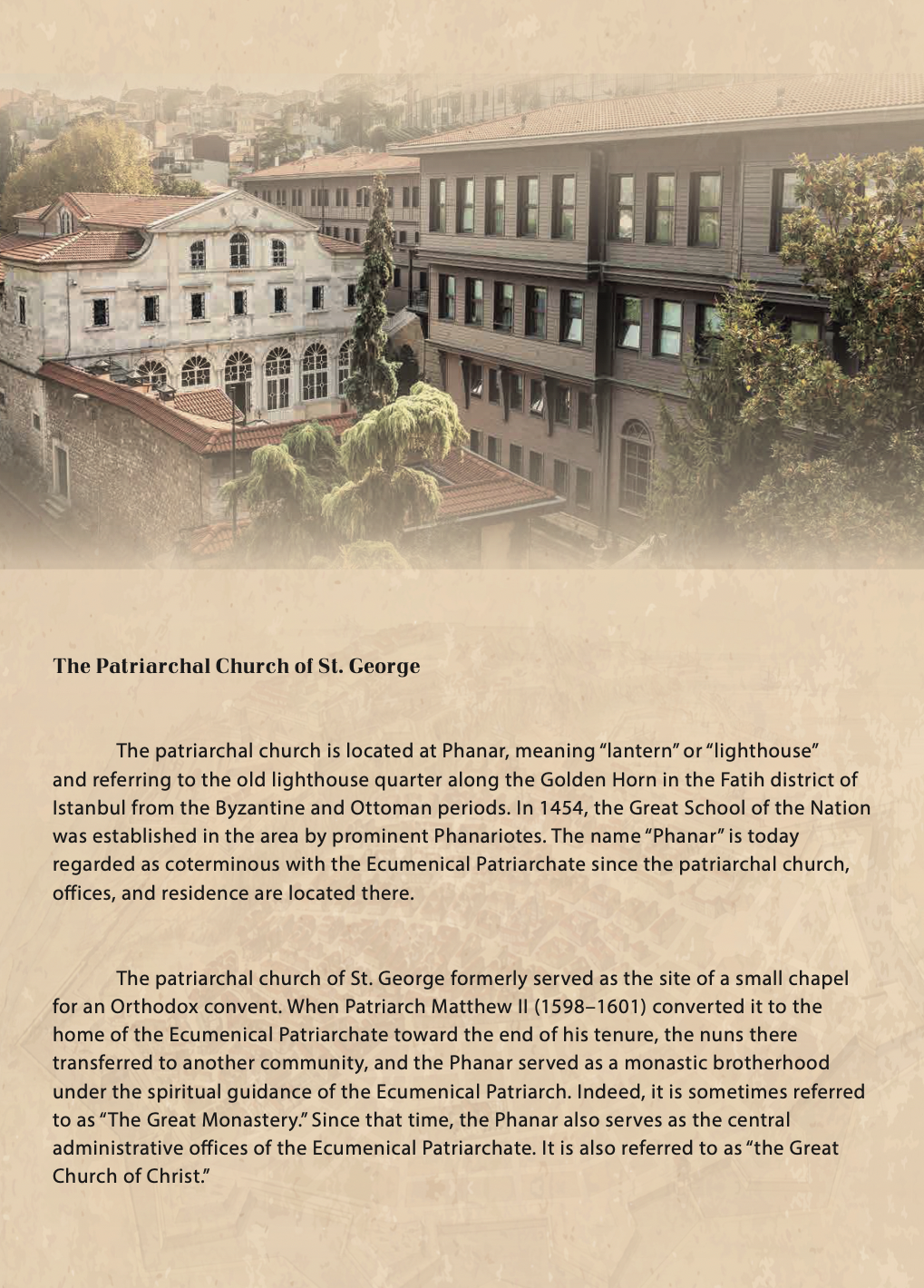
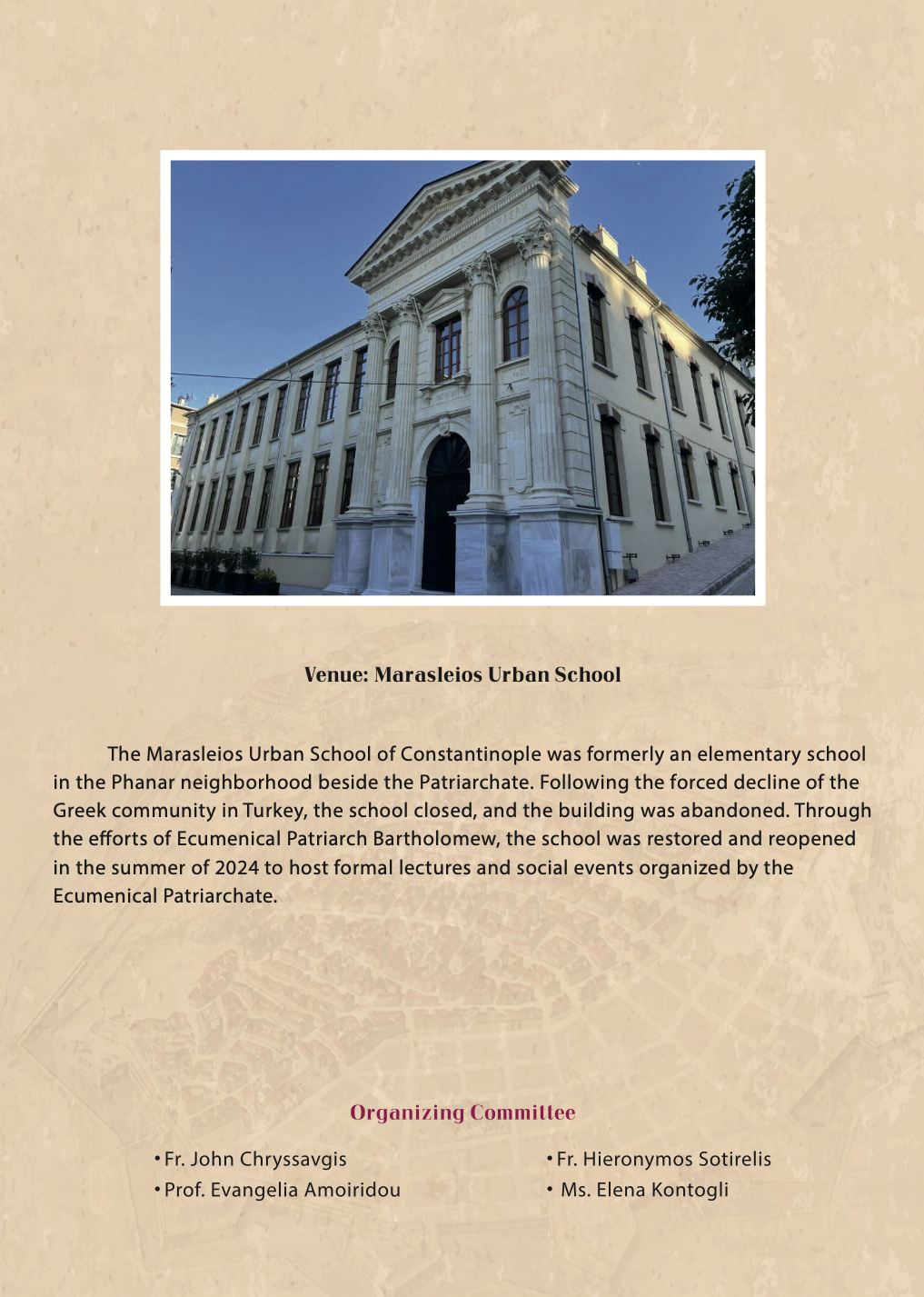
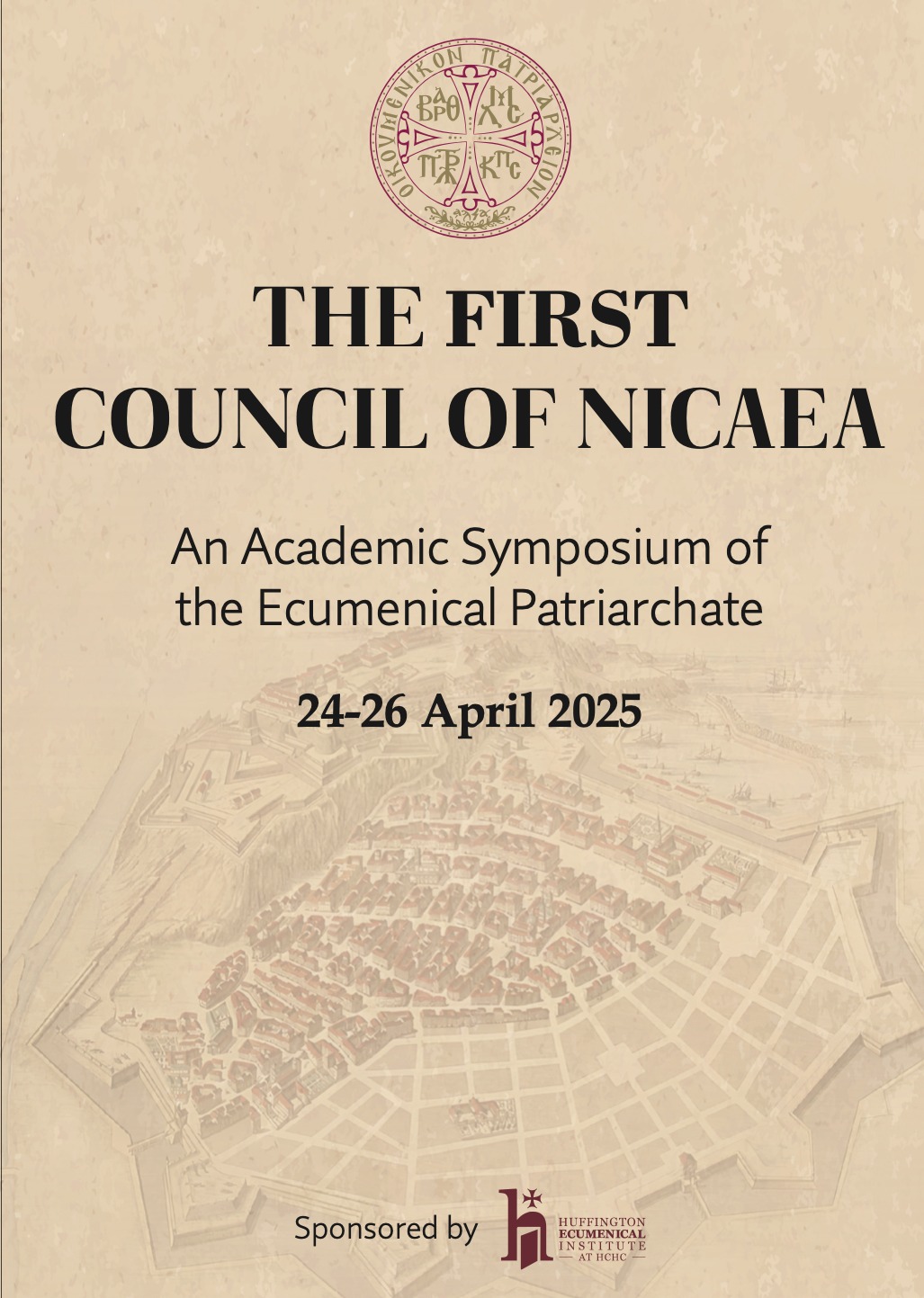
More:
Jesus Christ, Son of God, Savior:
1700th Anniversary of the Ecumenical Council of Nicaea (325-2025)
of the International Theological Commission
PRESS RELEASE:
Publication of the Document
3 April 2025
On 20 May 2025, the Christian world will commemorate the 1700th anniversary of the opening of the Council of Nicaea, which took place in Asia Minor in the year 325. This was the first ecumenical council in history, and it produced the creed that, completed by the First Council of Constantinople in 381, has become the distinctive expression of the Church’s faith in Jesus Christ. This anniversary occurs within the Jubilee Year, which is centred on the theme “Christ our Hope,” and it coincides with the common celebration of Easter by Christians of both East and West. As Pope Francis has emphasized, in this historic moment—marked by the tragedy of war along with countless anxieties and uncertainties—what is essential, most beautiful, most attractive, and also most necessary for Christians is precisely the faith in Jesus Christ proclaimed at Nicaea. Indeed, the proclamation of this faith is “the fundamental task of the Church” (Address to Participants in the Plenary Assembly of the Dicastery for the Doctrine of the Faith, 26 January 2024).
The International Theological Commission has now published an important and comprehensive document entitled, “Jesus Christ, Son of God, Savior: The 1700th Anniversary of the Ecumenical Council of Nicaea.” It aims not only to recall the nature and significance of the Council, given its great historical importance for the Church, but also to highlightthe extraordinary resources that the Nicene creed, continuously professed up to our own time, contains and re-proposes, especially in view of the new phase of evangelization that the Church is presently called to undertake. The document also highlights the relevance of these resources for a responsible and shared approach to addressing the epochal changes that are impacting culture and society worldwide. For the faith professed at Nicaea makes us see the explosive and enduring newness of the coming of the Son of God among us. It encourages us to expand our hearts and minds in order to welcome and engage with the gift of this decisive insight into the meaning and direction of history in light of the God who, through his only-begotten Son, to whom he communicates the fullness of his own life, makes us participants in that life through the Incarnation, and generously bestows on all the breath of the Holy Spirit, which overcomes all barriers: a breath of freedom from selfishness, of openness to reciprocal relationships, and of communion with others.
The faith that the Council of Nicaea witnesses to and hands on is the truth of a God who, being Love, is Trinity, and who, out of love, becomes one of us in his Son. This truth is the authentic principle of fraternity between individuals and peoples, and of the transformation of history in accordance with the prayer that Jesus addressed to the Father on the eve of the supreme gift of his life for us, “that they may be one, as we are one” (Jn 17:22). The Nicene Creed thus stands at the heart of the Church’s faith as a wellspring of living water to be drawn upon also today. Through it, we can enter into Jesus’ gaze and, in him, into the gaze with which God, Abba, looks upon all his children and upon the whole of creation, starting with the least, the poor and the outcast. For the only-begotten Son of the Father—who became the “firstborn among many brothers and sisters” (Rom 8:29)—identifies with them to the point that he considers that what is done to each one of them is done to him (cf. Mt 25:40).
The document of the International Theological Commission is not intended simply to be a text of academic theology. It is offered as a valuable and timely synthesis that can positively assist growth in faith and lived witness to faith within the Christian community. As such, it seeks not only enrich participation in liturgical life with new insights and guide the People of God in their understanding and experience of the faith, but also to inspire and direct the cultural and social commitment of Christians during this challenging time of epochal change. Significantly, it was at Nicaea that the Church’s unity and mission were first expressed emblematically at a universal level (hence its designation as “ecumenical”) through the synodal experience of “journeying together,” which is proper to the Church. Nicaea thus stands as an authoritative reference point and inspiration for the synodal process in which the Catholic Church is engaged today, in her commitment to experience a conversion and reform marked by the principle of relationship and reciprocity for mission, as the Final Document of the last Assembly of the Synod of Bishops, issued by Pope Francis, vigorously affirms.
The International Theological Commission therefore extends an invitation to attend the Study Day on the document, “Jesus Christ, Son of God, Savior: The 1700th Anniversary of the Ecumenical Council of Nicaea (325-2025),” to be held on 20 May 2025 at the “Saint John Paul II” Auditorium of the Pontifical Urbaniana University. (For more information, see: ).
Index
Preliminary note
Introduction: Doxology, theology and proclamation
Chapter 1: The Symbol for salvation: doxology and theology of the Nicene dogma
- Grasping the immensity of the three divine Persons who save us: ‘God is Love’ – infinitely
1.1 The greatness of the fatherhood of God the Father, foundation of the greatness of the Son and the Spirit 1.2 A reflection on recourse to the expression homoousios 1.3 The unity of the history of salvation
- Grasping the immensity of Christ the Saviour and his saving act
2.1 Seeing Christ in all his greatness 2.2 The immensity of the act of salvation: its historical density 2.3 The greatness of the act of salvation: the paschal mystery
- Grasping the immensity of the salvation offered to human beings and the immensity of our human vocation
3.1 The greatness of salvation: entering into the life of God 3.2 The immensity of the human vocation to divine Love 3.3 The beauty of the gift of the Church and of baptism
- Celebrating the immensity of salvation together: the ecumenical significance of the faith of Nicaea and hope for a common date for the celebration of Easter
Chapter 2: The Symbol of Nicaea in the life of believers: ‘We believe as we baptise and we pray as we believe.’
Introduction: Living out the faith we confess
-
Baptism and Trinitarian faith
-
The Symbol of Nicaea as a confession of faith
-
Going deeper in preaching and catechesis
-
Prayer to the Son and doxologies
-
Theology in hymns
Chapter 3: Nicaea as a theological and ecclesial event
- The Christ event: ‘No one has ever seen God. The one-begotten Son has revealed him’ (Jn 1:18)
1.1 Christ, the Incarnate Word, reveals the Father 1.2 ‘We have the mind (νοῦς) of Christ’ (1 Cor 2:16): analogy of creation and analogy of charity 1.3 Entering into knowledge of the Father through the prayer of Christ
- The event of Wisdom: a new reality for human thought
2.1 Revelation enriches and expands human thought 2.2 A cultural and intercultural event 2.3 The Church’s creative fidelity and the problem of heresy
- The ecclesial event: the Council of Nicaea, the first ecumenical council
3.1 The Church enters into the event of Jesus Christ through her nature and structures 3.2 The structural collaboration of the Church's charisms and the road to Nicaea 3.3 The Ecumenical Council of Nicaea
Chapter 4: Keeping the faith accessible for all God's people
Introduction: The Council of Nicaea and the conditions of credibility of the Christian mystery
- Theology at the service of the integral character of salvific truth
1.1 Christ, the eschatologically effective truth 1.2 Salvation and the process of divine filiation
- The mediation of the Church and the inversion of the dogmatic order: Trinity, Christology, Pneumatology, Ecclesiology
2.1 The mediations of faith and the ministry of the Church 2.2 Disagreement and synodality 2.3 The tongues of the Holy Spirit for forming and renewing consensus
- Safeguarding the deposit of faith: charity at the service of the littlest
3.1 The unanimous faith of the People of God offered to all 3.2 Protecting faith before political power
Conclusion: Proclaiming Jesus our Salvation to everyone today